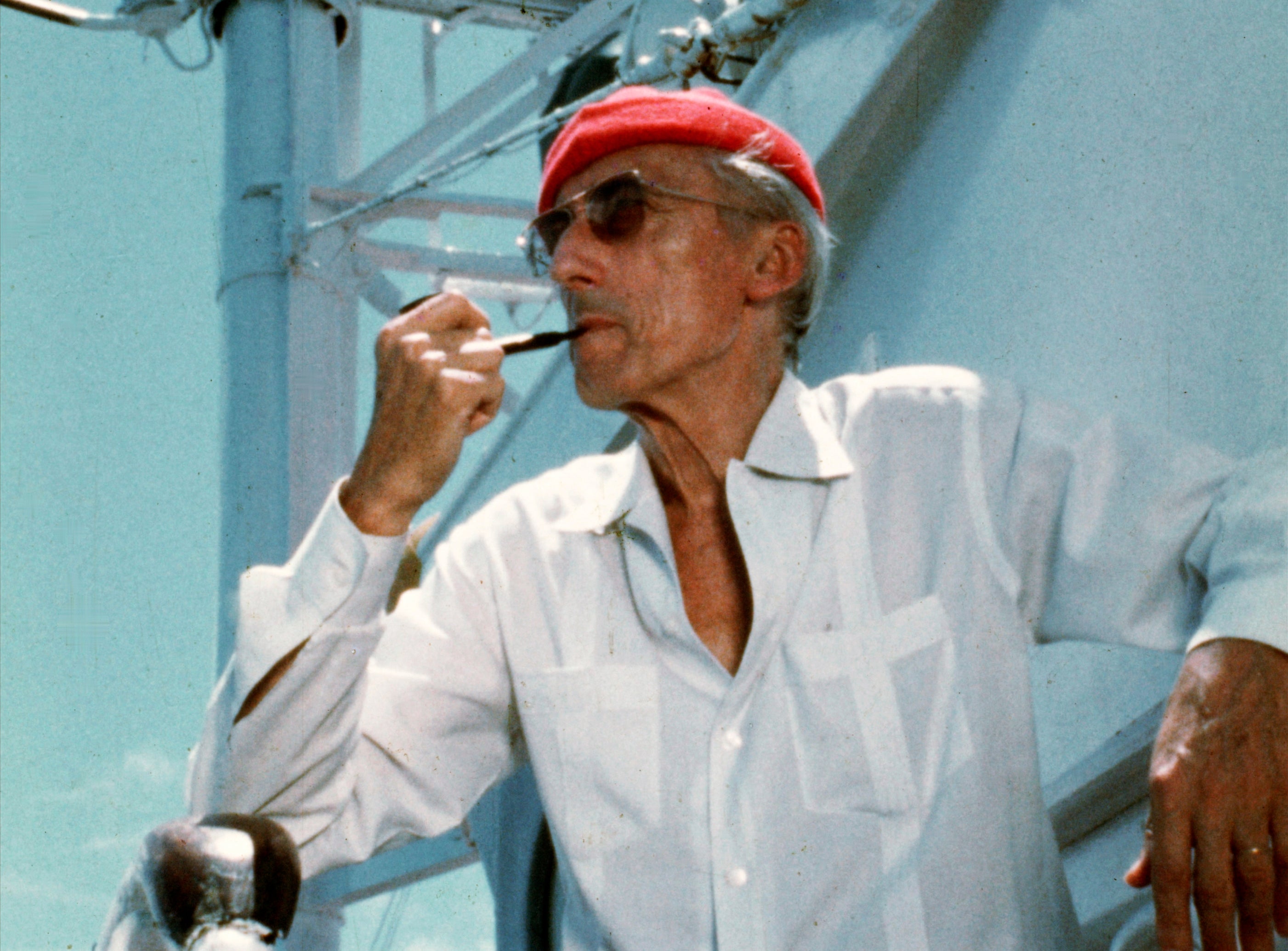In 'Becoming Cousteau,' diving into the depths of Jacques
Who was Jacques-Yves Cousteau, exactly

Your support helps us to tell the story
From reproductive rights to climate change to Big Tech, The Independent is on the ground when the story is developing. Whether it's investigating the financials of Elon Musk's pro-Trump PAC or producing our latest documentary, 'The A Word', which shines a light on the American women fighting for reproductive rights, we know how important it is to parse out the facts from the messaging.
At such a critical moment in US history, we need reporters on the ground. Your donation allows us to keep sending journalists to speak to both sides of the story.
The Independent is trusted by Americans across the entire political spectrum. And unlike many other quality news outlets, we choose not to lock Americans out of our reporting and analysis with paywalls. We believe quality journalism should be available to everyone, paid for by those who can afford it.
Your support makes all the difference.Who was Jacques-Yves Cousteau, exactly?
He was an oceanographer and explorer but held no scientific degree. He was an environmentalist whose voyages were nevertheless sometimes funded by oil companies seeking drilling sites. He was a filmmaker who made otherworldly undersea documentaries — three won best documentary Oscars — but he disliked the term. He preferred “adventure films.”
Maybe Cousteau’s legacy is, appropriately, more fluid. Perhaps more than anything else, Cousteau symbolized a boundless spirit of adventure, leading a landlubbing public into enchanted underwater worlds. A siren of the seas.
In Liz Garbus’ “Becoming Cousteau,” an editor named John Soh from ABC’s “The Undersea World of Jacques Cousteau” wrestles with the difficulty of labeling Cousteau only to conclude: “He was a man looking at the future.”
“Becoming Cousteau,” which National Geographic opens in theaters Friday, attempts to frame the singular Cousteau and his legacy as an early environmental defender of increasingly imperiled waters. It’s a defining documentary portrait of the French oceanographer — the real-life Steve Zissou — as a fish only truly content below the surface.
“I am miserable out of the water,” Cousteau, who died in 1993, says in a recording in the film. “It is as though you’ve been introduced to heaven and then forced back to Earth.”
The film, which will debut Nov. 24 on Disney+, has one toe in the dreamy mystical realm of Cousteau’s own making — the otherworldly underwater photography he shot with Louis Malle; the stylish, high-seas adventures aboard the Calypso — and another in a more sober reality of ocean pollution that Cousteau watched with growing concern. In later years, his popular, Emmy-winning nature series turned increasingly grim and ominous.
“By the end of his life, I think he felt like Cassandra screaming to everyone about this impending doom,” says Garbus. “Certainly he suffered commercially for that, as well. They were like: These shows are a downer.’”
Garbus, the prolific documentarian of two Oscar-nominated docs (“What Happened Miss Simone?” “The Farm: Angola, USA”) and a host of others ( “The Fourth Estate,” “All In: The Fight for Democracy”), first started developing the film in 2015. But it took years to get access approved by the Cousteau Society and his estate.
Cousteau's second wife, Francine Cousteau, and their two children, Pierre Yves and Dianne, are executive producers on the film. (Cousteau also had two other sons: Jean-Michel and Philippe, who died in a plane crash in 1979.) Working with the family, Garbus says, was “very complicated.”
“Becoming Cousteau” may be light on some of the late-years squabbling over his sizable empire, including the bankrupted theme park Cousteau Oceanic Park near Paris. But it doesn't shy away from the complexities of Cousteau's evolution from a former naval officer diving off the French Riviera in the Mediterranean to a world-famous explorer and entertainer synonymous with the sea who netted the public's imagination.
“I didn’t reread ‘The Iliad’ but I looked back on some stuff about Odysseus’ journey,” says Garbus. “In the final moment, he’s on land and he’s told to keep walking and bring the oar to find people who have never seen the sea and tell them about it. And that’s what he did.”
Cousteau’s legacy also includes co-creating the Aqua-lung, freeing underwater diving of clunky apparatus and birthing the use of scuba. For Garbus, he also led the way for generations of filmmakers, from last year’s Oscar-winning “My Octopus Teacher” to James Cameron. It makes Garbus wonder what Cousteau would make of today’s non-fiction ecosystem.
“What would he think if he was alive today with the streamers and all the competition for documentary content? I wonder if he would revise that statement or be prouder of it,” says Garbus.
“He probably would not have enjoyed sitting for a lengthy interview with the likes of me,” she adds. “But I hope that he would have felt that his life works -- this message of conservation -- is honored in the film and coming at a moment when we need it desperately. “
___
Follow AP Film Writer Jake Coyle on Twitter at: http://twitter.com/jakecoyleAP